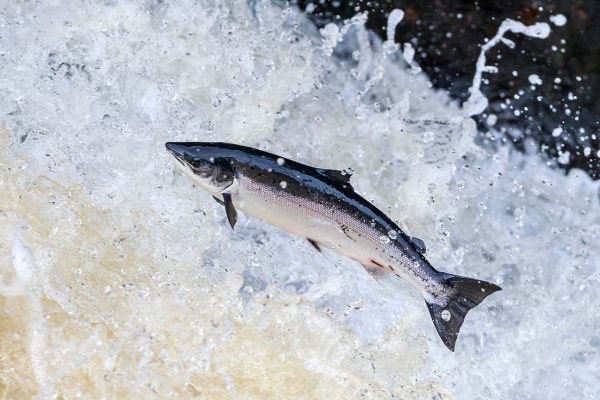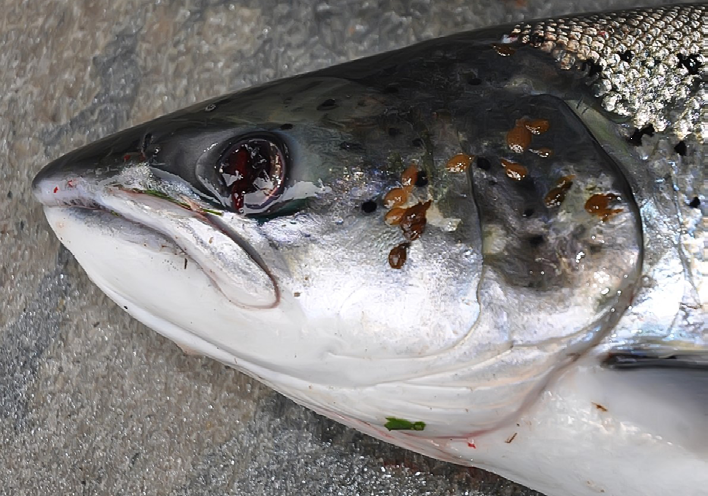-
Update on Deenish Island Salmon Farm
Deenish Island - Update 09 February 2021 The proposed closure of the Deenish site owned by MOWI has not taken place despite the Ministerial order to close the farm being issued in April 2019. This is nearly two years ago and during this time period MOWI have launched a High Court Judicial Review of the Ministers decision and also appealed to the Aquaculture Licence Appeal Board. The High Court case was adjourned generally in January 2020 and the case is still under consideration by the Aquaculture Licence Appeal Board (ALAB). It is entirely unsatisfactory that no decision has been forthcoming and the site has continued to operate throughout the period. It is anticipated that the farm will again be stocked this month to start a new cycle which will last until late 2022. The appeal to ALAB is expected to be decided by the end of June 21 but this is not certain and if this decision does endorse the Ministers decision, it would be expected that MOWI would again appeal to the High Court. Meanwhile the sea trout and salmon resource is under severe pressure in Waterville and adjacent catchments. Salmon Watch Ireland has actively pursued the review process and has been active in lobbying both the Department and ALAB to arrive at an early decision. With modern technologies available to MOWI and production strategies to mitigate the effects of sea lice and disease it is alarming that the company continues to operate as before with open net technologies. This type of farming,with no physical barrier separating it from the surrounding ocean, has been causatively linked to the virtual elimination of sea trout stocks in Ireland, Scotland and Norway. The effect on salmon is now better understood and various studies identify that salmon spawning stocks can be reduced by up to 50%. These effects on salmon and sea trout relate to both disease and the effects of sea lice infestation from farms. To put the fish farming situation in perspective in the local Kenmare Bay area the stock of farmed salmon can be up to one and a half million pre-adult and adult salmon residing in two farms while the stock of wild salmon and sea trout now numbers probably less than ten thousand fish in the local area. In effect the wild salmon stock returning to Ireland now numbers less than 220,000 fish so effectively the two farms in Kenmare Bay dwarf Ireland's wild population by a factor of eight. Without the use of modern technologies these farms are a reservoir for disease, parasites and harmful pathogens. The entire west coast of Ireland is practically devoid of sea trout in areas where salmon farms exist, and Waterville is essentially heading in this direction. The economic collapse in the angling tourism sector and ecological destruction of the sea trout in Waterville can be reversed if a new and more environmentally responsible industry is put in place. Closed containment systems are now common in other countries and are evolving constantly. With climatic change gathering pace in Ireland, it is inevitable that fish farm mortalities will increase substantially. Increasing water temperatures will result in more harmful algal blooms and increased densities of jellyfish, both of which have and will cause large scale mortalities on farms. The reservoir of sea lice coming from farms will also increase with a warming ocean effectively reducing generation time giving more lice over the entire year. The advent of closed containment systems will effectively deal with these harmful episodes but will certainly also protect wild fish from sea lice infestation and other harmful effects emanating from open cage farming. There needs to an adult conversation between the Government, the industry and the various stakeholders as to how wild fish populations can be protected. Unless the industry and government regulators are prepared to change it is inevitable that all farm licences will be subject to judicial review in the High Court by vigilant conservation NGOs such as Salmon Watch Ireland. The European Commission is also aware of the specifics of the licensing system of salmon farming in Ireland and a formal complaint has been issued by Salmon Watch Ireland.
Continue reading






